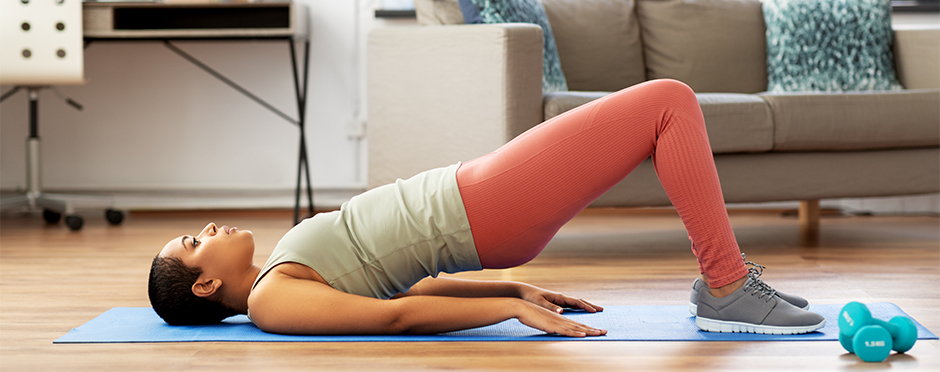
How Exercise Can Boost Mental Health During Postpartum Depression
Leave a CommentExercise is known to have many physical benefits, including improved quality of life and reduced risk of chronic disease. As most individuals know, exercise helps improve physical health and has mental health benefits. Exercise can help by improving self-esteem and cognitive function, as well as reducing mental health concerns, including anxiety, depression, and negative mood. Exercise plays a role in mental health care by increasing blood circulation to the brain leading to a reduced reactive response to stressors. Despite the most recent research, exercise is often underutilized as an intervention regarding mental health, specifically in the postpartum population.
Postpartum depression is defined as “depression suffered by a mother following childbirth, typically arising from the combination of hormonal changes, psychological adjustments to motherhood, and fatigue.”2 Symptoms of postpartum depression can include, but are not limited to, mood swings, anxiety, sadness, irritability, feeling overwhelmed, crying, reduced concentration, appetite problems, difficulty bonding, withdraw from loved ones, anger, hopelessness, and trouble sleeping. These symptoms typically start 2-3 weeks following childbirth and can last 2 weeks, sometimes longer.2
So, how does exercise play a role? As defined above, exercise increases blood flow to the brain, reducing physiological reactivity to stress.1 This holds true in the postpartum population as well. Recent studies have even shown exercise during pregnancy can help to reduce or prevent postpartum depression from occurring at all.
Now, how do you start a new exercise routine? There are a few safety considerations to take into account. Before starting any new type of exercise, always speak with your doctor to ensure safety with your new exercise journey and have your pelvic floor muscle health and function checked by a physical therapist. After discussing a plan with your physician, determine what type of exercise is best for you. Exercise doesn’t have to be traditional running and weightlifting. There are a variety of forms of exercise available. The type of exercise you choose should be something you enjoy because this is how you will maintain the new lifestyle choice you are deciding to make. Different types of exercise could include walking, running, biking, weightlifting, dancing, or taking group fitness classes. If you are still unsure about exercise and the safety of exercise, reach out to your local personal trainer or physical therapist for guidance on your journey.
If you have exercise questions or begin to have pain throughout your pregnancy or postpartum journey, consult a physical therapist, specifically someone specializing in pregnancy. While pain during pregnancy is not a red flag, it should be taken seriously and understood it doesn’t have to be “normal.” Seeking a pregnancy specialist can ensure that your safety is considered. Contact an Athletico pelvic floor therapist for a free assessment. Our Athletico team will assess your pain and recommend a treatment plan to prevent pain during pregnancy or advise on safety considerations with exercise during and after pregnancy. Free Assessments are available in-clinic and virtually through our Telehealth platform.
Find a Pelvic Health Therapist
The Athletico blog is an educational resource written by Athletico employees. Athletico bloggers are licensed professionals who abide by the code of ethics outlined by their respective professional associations. The content published in blog posts represents the opinion of the individual author based on their expertise and experience. The content provided in this blog is for informational purposes only, does not constitute medical advice and should not be relied on for making personal health decisions.
Resources:
1. Sharma , A., Madaan, V., & Petty, F. (n.d.). Exercise for mental health . National Library of Medicine. Retrieved from https://www.ncbi.nlm.nih.gov/pmc/articles/PMC1470658/
2. Mayo Foundation for Medical Education and Research. (2022, November 24). Postpartum depression. Mayo Clinic. Retrieved April 18, 2023, from https://www.mayoclinic.org/diseases-conditions/postpartum-depression/symptoms-causes/syc-20376617
